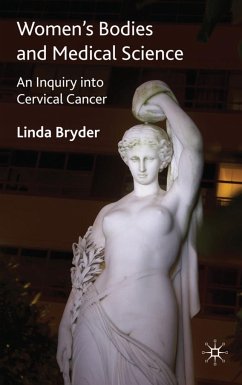An analysis of a scandal involving a doctor accused of allowing a number of women to develop cervical cancer from carcinoma in situ as part of an experiment he had been conducting since the 1960s into conservative treatment of the disease, to more broadly explore dramatic changes in medical history in the second half of the twentieth century.
'This is an impressive book, tackling a grave and sensitive episode in the history of medicine, women and feminism. . . . Bryder reveals much about the public understanding (and misunderstanding) of science, the role of the media, and democratic practice in a world increasingly understood, managed and explained by cultures of expertise.'- Janet McCalman, Centre for Health& Society, University of Melbourne
'Professor Bryder has addressed a question that has remained inadequately investigated for over a quarter of a century. What was the 'generally accepted', 'conventional' treatment for abnormal cervical cytology which women in Auckland were allegedly denied in the late 1960s and 1970s? Her thorough review of international practice at that time makes clear that there was no generally accepted treatment, a fact that reflected the haphazard way in which screening for cancer of the cervix had been introduced and evaluated.'- Iain Chalmers, James Lind Library, Oxford
'Professor Bryder has addressed a question that has remained inadequately investigated for over a quarter of a century. What was the 'generally accepted', 'conventional' treatment for abnormal cervical cytology which women in Auckland were allegedly denied in the late 1960s and 1970s? Her thorough review of international practice at that time makes clear that there was no generally accepted treatment, a fact that reflected the haphazard way in which screening for cancer of the cervix had been introduced and evaluated.'- Iain Chalmers, James Lind Library, Oxford









